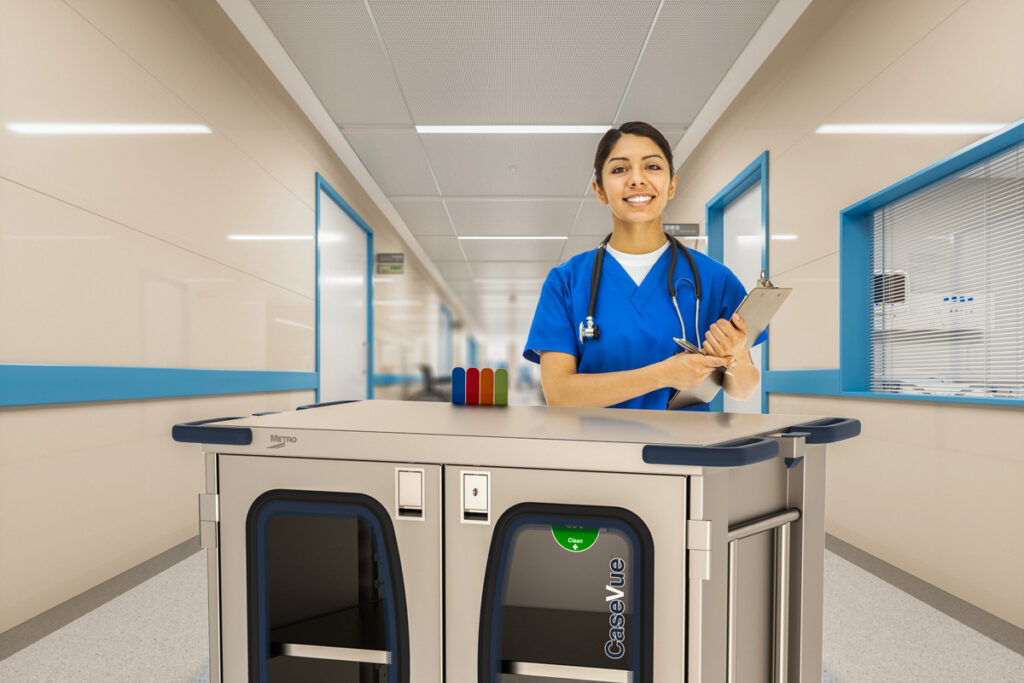Sponsored: CME Corp – February 2023 – The Journal of Healthcare Contracting
Case carts are crucial within a hospital or surgery center. A fully stocked cart, with all of the necessary supplies and instruments for a surgical case, needs to get to the OR on time to maximize efficiency. Carts getting to the OR late or without crucial items can cause chaos in the OR and plays havoc with the surgery schedule. Metro decided to go directly to the users to find out the biggest problems with the carts they were currently using and work on real solutions. Here are the biggest problems Metro heard from customers and distributor partners.

Case Carts are Missing Items
Case carts house many vital components for a surgery including surgical packs, supplies, and instruments. Most carts have no system that tells an outside observer if something is missing. Many hospitals use orange traffic cones on the tops of carts to indicate there are missing items!
Metro designed their new CaseVue™ Surgical Case Carts with four color indicators clearly visible on the top of the cart that identifies the status of the cart. If it has a green indicator showing, the cart is ready for use. Orange means there is a missing product, blue indicates a cancelled case, and red indicates biohazard waste on board and that the cart needs cleaning. The colors can also be customized to your facility needs.
Case Carts are Bulky, Heavy, Noisy, and Hard to Maneuver
With all of the labor shortages healthcare facilities are facing, keeping workers healthy is particularly important. A fully loaded cart can weigh hundreds of pounds so designing the cart ergonomically with maximum maneuverability is imperative.
The new CaseVue™ Surgical Case Carts offer two exclusive ergonomic features. The swing up handle allows for workers of various heights to steer the cart easily. The optional 5th wheel steering assist is ground-breaking, assuring maximum control in transit.
The Thermoplastic Rubber casters were designed to mitigate vibration noise from being transferred to the cart body. The doors bumpers, reinforced floor, and contoured side panels along with the new casters make this cart one of the quietest available in the market.
After Cleaning, Cart Handles are Too Hot to Handle
Case carts go through the cart wash after each case. Many facilities have potholders available so that healthcare workers can touch the newly cleaned carts without getting burned.
Metro has cool touch, antimicrobial handles on all of their case carts so no need for potholders. The case carts are also constructed of Type 304 Stainless Steel which has superior corrosion protection. These carts can go through the cart wash several times a day so being more rust resistant helps these carts last longer.
CME Corp has a list of criteria we use to choose our strategic manufacturer partners. Working collaboratively with CME as partners as well as offering superior products are two of the top criteria. We are a proud strategic partner of Metro’s. For more information about the new CaseVue™ Surgical Case Carts or any Metro product, please contact CME at 800-338-2372 or visit www.cmecorp.com. Changing case carts is challenging and a CME Account Manager can help arrange a 30-day demonstration to help make that decision easier.
